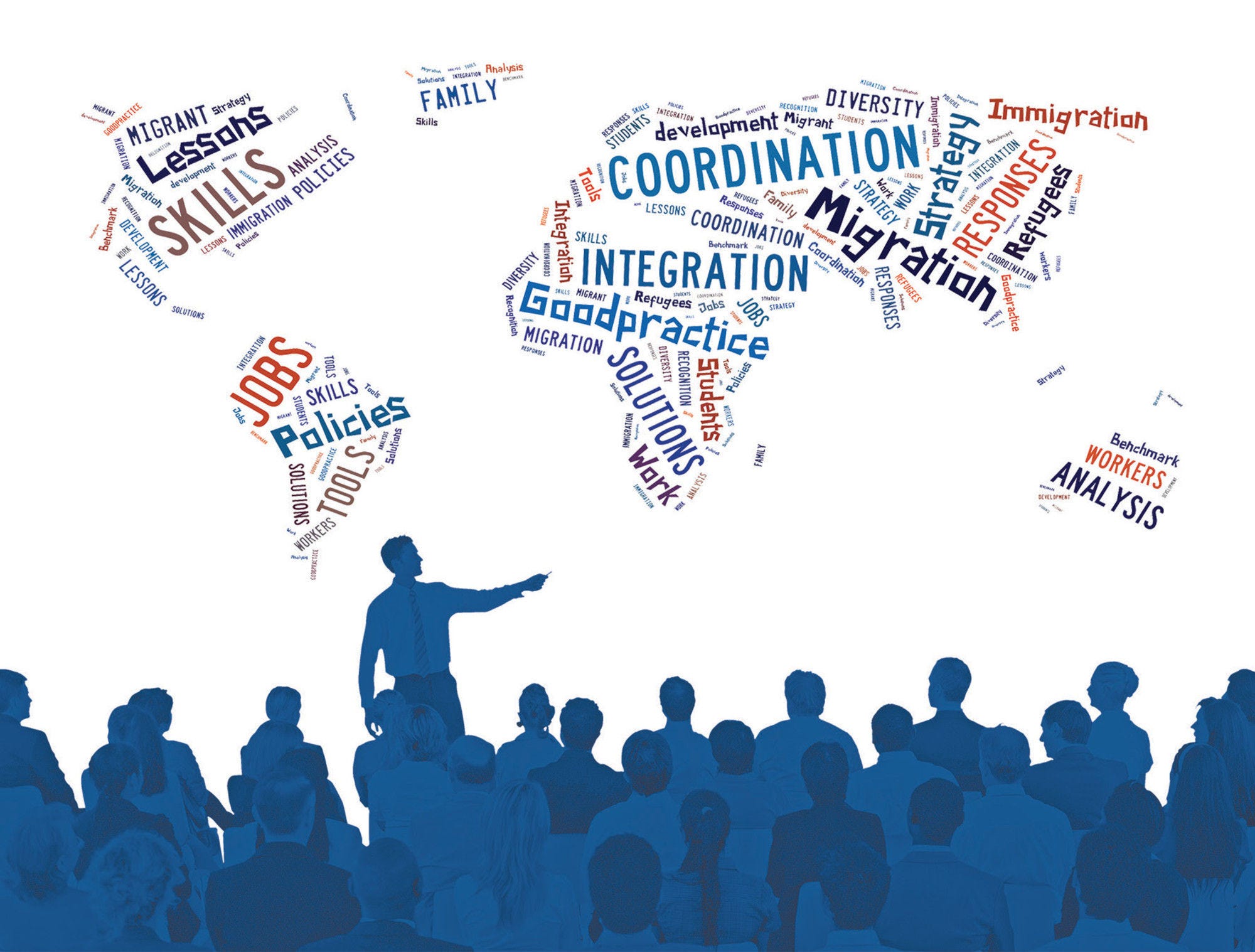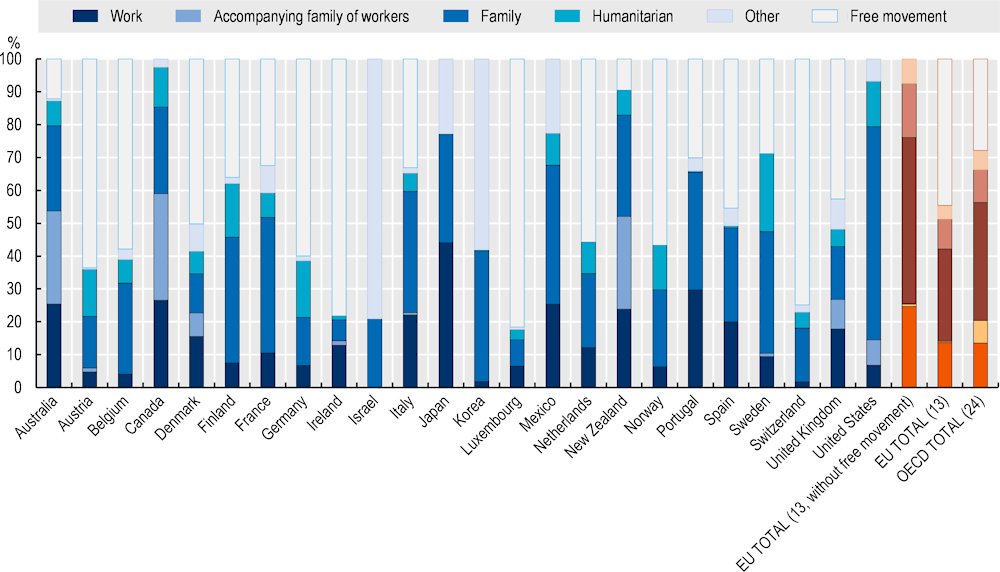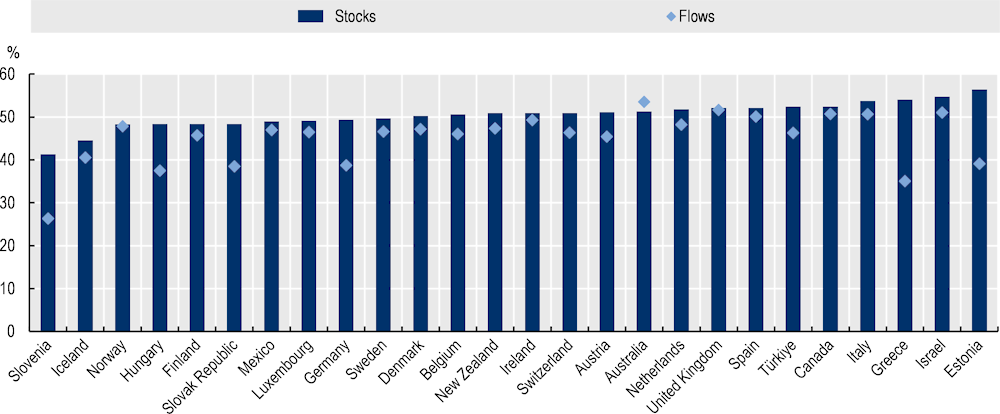Migration inflows in OECD and EU countries have been on the rise in the past decades, despite the large drop during the COVID‑19 crisis. At the same time, evidence has been accumulating that recent migrants have lagged behind the native‑born. These two broad patterns clearly point to the need to pay attention migrant integration from the early stage of their arrival in the host country. Migrants have the potential to bring substantial benefits to their host countries (OECD, 2021[1]), and yet, it is clear certain systemic barriers exist that can prevent them from reaching that potential. Joint work by the OECD and the EU has shown that migrants in most OECD and EU countries have on average worse outcomes than the native‑born population (OECD/European Union, 2018[2]). Gaps in unemployment and employment rates between foreign and native‑born populations remain significant in most countries, with some notable exceptions. Newly arrived adult migrants, who have been raised, educated, and often employed in a very different context from the one where they find themselves in their host country, will likely need some assistance in bridging these gaps. Introduction measures can help countries enhance the benefits that productive migrants bring to their communities.
Successful labour market integration is often seen as essential to maintaining the welfare state (primarily in European countries), and employment is widely regarded as a path to social integration and cohesion. In recent years, there has also been growing attention to social integration, with a view towards ensuring that newly-arrived immigrants are aware of, and indeed ideally share, the core values of the host-country society (see below). The most sensible time to take stock of a migrant’s existing skills and develop a plan to build new ones is upon their arrival in the host country.
Migrants arrive in their host country with a variety of different skills and competencies. Upon their arrival, it is very important to take stock of their existing skills and develop a plan to build new ones. Migrants can be expected to be at different points in their lives, have different goals and obligations, and have different needs. If needs and expectations are addressed at the early stages of the integration trajectory, the migrant has more time to settle in to life in the host country. Integration is the process by which migrants build upon the portable skills they have, adding country-specific skills – notably language – and understanding. Working-age migrants will also have more productive years ahead of them than they would if integrated later. Improving the labour-market outcomes of migrants is important, for both the host country and the migrant.
Early integration is not only a predictor of later outcomes. There is evidence that early intervention provides strong payoffs (OECD, 2014[3]). In particular, targeted introduction measures can hasten improvements in outcomes by creating more opportunities for newly arrived immigrants to find work quickly or begin an educational/vocational programme. Among these measures, language training has received significant focus given the fact that language proficiency impacts so many other integration outcomes, allowing migrants to access services, to communicate their needs within the host-country society, and enter the labour market earlier. Immigrants who speak the host-country language have significantly higher employment rates than those who report language difficulties – independent of the reason for migration and the level and origin of qualifications (Zorlu and Hartog, 2018[4]).
The first years of settlement are a dynamic phase for migrants. In all countries, longer residence is associated with better knowledge of the host-country language and higher employment rates for immigrants, but the learning curve tends to be steeper during the early years after arrival than in later years (Hartshorne, Tenenbaum and Pinker, 2018[5]). Across the EU, among recently arrived non-native speakers, attending a language course in the host country has been associated with an 8 percentage point greater likelihood of proficiency in the host language (OECD/European Union, 2018[2]). Emphasising early language learning for adult new arrivals should provide a high pay-off, particularly in countries with a high share of humanitarian migrants, who often have little‑to-no proficiency in the host-country language and often have concurrent integration needs.

 Extensive national programme
Extensive national programme Broad, targeted national measures
Broad, targeted national measures Small-scale national measures
Small-scale national measures Local measures
Local measures Mainstream measures
Mainstream measures
